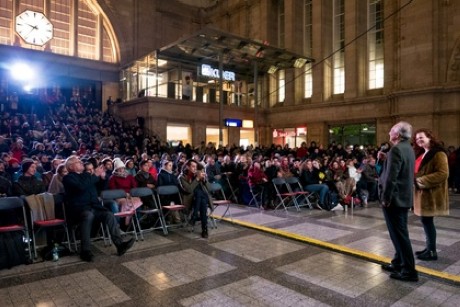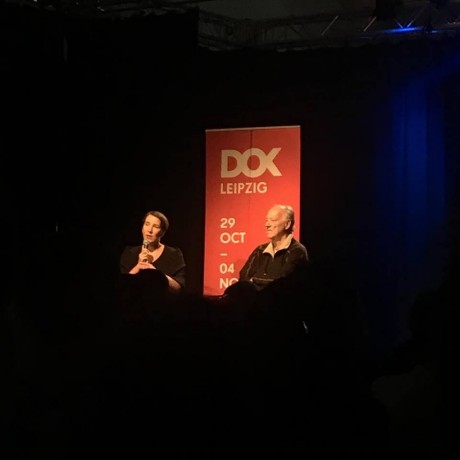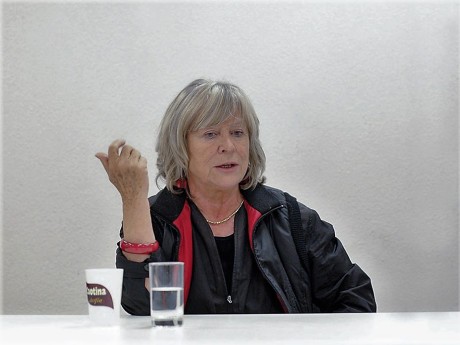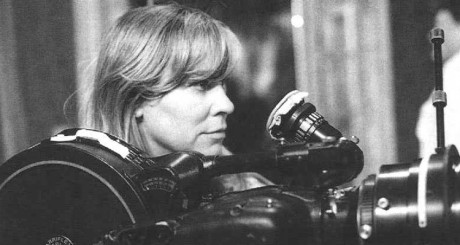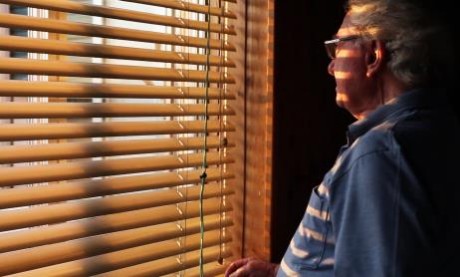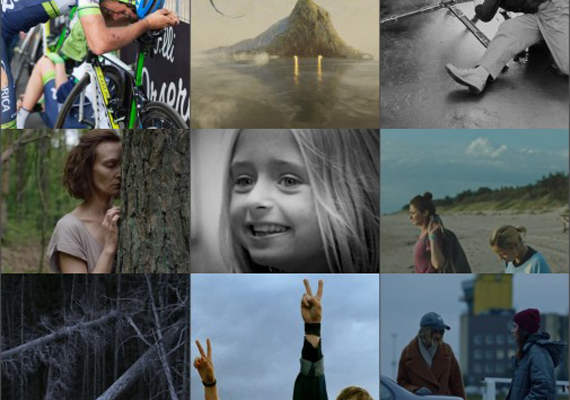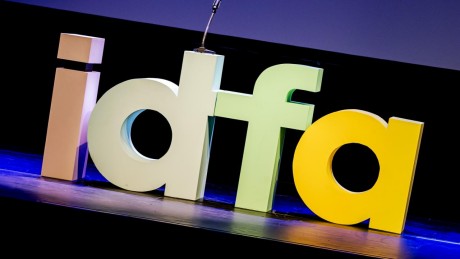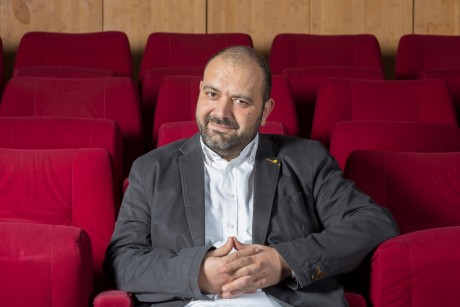There he was, Orwa Nyrabia, the new artistic director of IDFA, to be watched through streaming yesterday afternoon. I saw the first half of his presentation and could only nod, when he started telling us press people that documentaries are not made to answer questions, no they are there to raise and trace questions. Orwa stressed that the selection has not been made according to subject – subject is not enough, there should be much more. And journalistic documentaries should accordingly be more than mere reporting. Good to be reminded of basics of the artistic documentary, or call it the creative – in other words: documentary is an Art form.
Orwa showed clips and apart from looking forward to the Vertov-film, “The Sound of Masks” by Sara de Gouvela, placed in the Luminous category, of South African and Portuguese production background, is now a Must for me. Wow, for a clip. Anyway, go to the website and study the selection for the feature-length competition, for me new names but also films by Geyerhalter, Hungarian Eszter Hajdú, Israeli Tomer Heymann, Chilean couple Bettina Perut & Iván Osnovikoff, Indian Anand Patwardhan. Read this shortened clip from the press release:
“IDFA, the International Documentary Film Festival Amsterdam, has just announced the opening film for the festival’s 31st edition. In addition, the complete list of nominees for the Feature-Length Documentary, First Appearance and Dutch Documentary competitions can now be found online.
DocLab, IDFA’s new media program, has also published details of its competitions for Digital Storytelling and Immersive Non-Fiction. The projects participating in Spotlight, the non- competitive component of DocLab, have also been announced.
In its Serialized programme, IDFA will be focusing on the omnipresent series format. And finally, the 10 nominations for the Amsterdam Human Rights Award have also been announced today, meaning that the full IDFA program for 2018 is now complete.
Starting from 2018, IDFA is making inclusion a high priority. This means that gender parity and geographical and cultural representation across all the components of IDFA is an inherent part of the festival processes. 41% of the filmmakers selected for the program of IDFA 2018 are female, and the professionals attending the event come from 71 different countries. The next edition of IDFA takes place from the 14th through the 25th of November in Amsterdam.
IDFA opening film 2018: Kabul, City in the Wind
On Wednesday November 14th, the 31st IDFA will open in Koninklijk Theater Carré with Kabul, City in the Wind by Aboozar Amini. The film is a sobering, intimate and warm account of daily life in Kabul during the silent intervals between suicide bombings. The bombings that happened, and those that will, define life for the film’s characters; a father who works as a bus driver, and two young boys whose policeman father is away due to murder threats. “Amini introduces himself as an original uncompromising artist of film, he absorbed the work of Abbas Kiarostami and made it his very own,” Artistic director Orwa Nyrabia comments.
Aboozar Amini (Bamiyan, Afghanistan, 1985) arrived in the Netherlands as a teenager and graduated from the Gerrit Rietveld Academie in 2010. Amini returned to reside in Afghanistan after his studies in the Netherlands. Kabul, City in the Wind is a co-production between Afghanistan, Japan and the Netherlands and was made with support from the IDFA Bertha Fund.
IDFA Competition for Feature-Length Documentary
IDFA’s main competition consists of 12 titles by established filmmakers. This year’s selection is characterised by a great diversity of styles and forms – from intense visual experiences to sobering narratives.
IDFA Competition for First Appearance
For the first time, the IDFA Competition for First Appearance consists exclusively of first films. The opening film is one of the entries in this competition. The selection demonstrates the promising future of documentary film…
www.idfa.nl



